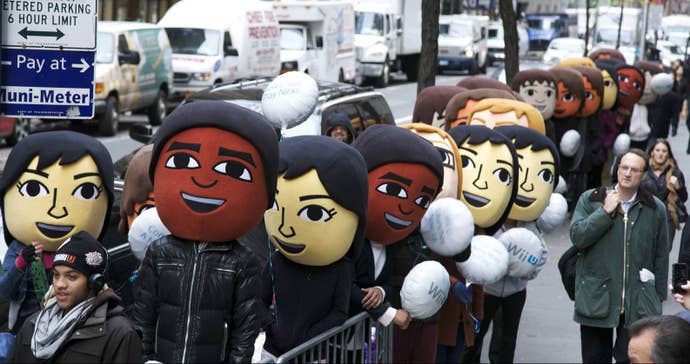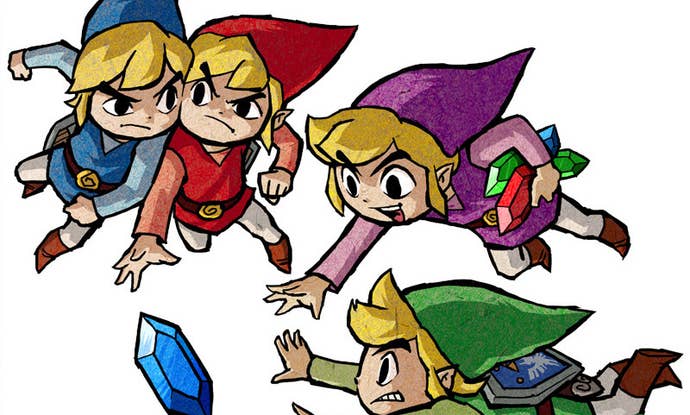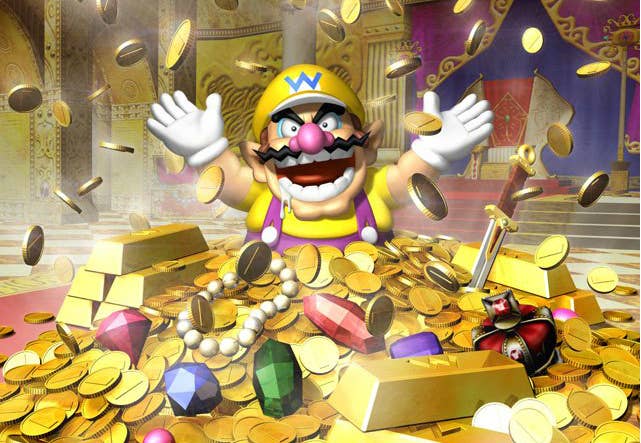Nintendo is a Business, Not Your Friend
Nintendo of America fires a Treehouse employee after a lengthy campaign against her.
This article first appeared on USgamer, a partner publication of VG247. Some content, such as this article, has been migrated to VG247 for posterity after USgamer's closure - but it has not been edited or further vetted by the VG247 team.
Nintendo creates fun gaming experiences for the whole family. Nintendo has been making video games longer than nearly any other company in the world. Nintendo has brought us amazing characters like Mario, Link, and Samus. It has defined countless childhoods with systems like the NES, Super NES, Game Boy, and Game Boy Advance. Sometimes, it almost feels like Nintendo is a close friend, one who tries to get things right, even if they don't always succeed.

Under all of this, however, Nintendo is still a corporation.
Yesterday, Nintendo fired Treehouse employee Alison Rapp. Her termination comes at the end of a lengthy campaign of anonymous Internet harassment, first because she was targeted as a visible face of Nintendo of America to take heat for unpopular changes the company has made in several game localizations, and later because of statements she made in her college thesis and on Twitter about that thesis. It's a complicated and unpleasant situation, and Kotaku has a full rundown of the events surrounding Rapp.
Whether you agree with Rapp's situation, Nintendo of America has sat quietly for months as one of its employees suffered as the target of an enormous campaign of harassment, related primarily to their games. When push came to shove, Nintendo's responses was seemingly to kick that employee out of the bus and and leave her to be torn up beneath the wheels.
Following her termination, Nintendo of America released a statement about the matter, which is actually a rather uncharacteristic act for the company.
"Alison Rapp was terminated due to violation of an internal company policy involving holding a second job in conflict with Nintendo's corporate culture," a Nintendo of America spokesperson told USgamer. "Though Ms. Rapp's termination follows her being the subject of criticism from certain groups via social media several weeks ago, the two are absolutely not related. Nintendo is a company committed to fostering inclusion and diversity in both our company and the broader video game industry and we firmly reject the harassment of individuals based on gender, race or personal beliefs. We wish Ms. Rapp well in her future endeavors."
Moonlighting rules are rather common in many U.S. companies. Most employers want you to only work for them and having employees who are working two and three jobs means that work can suffer. You can also run into issues where there is a conflict of interest. For the most part, however, moonlight is treated like jaywalking; it's bad, but many people do it and no company really cares... until they do.
Rapp did tweet about a photoshoot (which we will not link here) in early February, which fits with the timeline of her firing, but Rapp contends it was another job done under a pseudonym. As it stands, the harassment campaign made Rapp very visible; that increased visibility probably added to Nintendo's motivation to cut ties with her and her second job was a solid reason to do so. The issue is really Nintendo's general silence on the treatment of its employee — companies should do better by their workers — and the idea that the ultimate outcome may embolden those who were a part of her harassment in the first place. And let me stress that: Nintendo's months-long silence prior to all of this has been deafening.

There's a larger point here, one concerning Nintendo specifically and corporations in general. We forget, in our Internet conversations and console war missives, that these companies don't do what they do for our benefit. There is a creative drive from within each company when they create games, but the overall point of a corporation is simply to make a profit. They are businesses and they exist to make money. All of their actions are aimed in that direction, and it's rare that any company fully moves beyond that.
Corporations are also amazingly risk averse. They're far better at doubling-down in a specific direction rather than pivoting towards something new. You see that in the endless parade of sequels, or the trends that tend to seize gaming en masse.
Where did all those great genres you used to know go? Publishers deemed them unprofitable. The fall of Konami and the situation with Hideo Kojima? It's because the publisher decided there was more money in mobile gaming and other industries. Do you lament the fact that there's one Ubisoft game and titles like Prince of Persia have fallen by the wayside? That's because the Assassin's Creed/Far Cry style of play has proven to be where the money is.

This risk-aversion leads to companies missing useful segments of the market. They tend to be blind about what fans really want, because honestly, they only know what they have sold in the past or what their competitors are doing. One big example for how blind companies can be and how much they follow trends is the MOBA genre.
Blizzard had that genre in the bag. Defense of the Ancients began as a mod for one of their games. They always had the chance to blow that up and make money on it. Riot Games stepped in, made League of Legends, made a ton of money, and now everyone is chasing that MOBA dollar. The consumer base was always there, the industry just didn't care. It's a machine trying to make money, and any "goodness" that emerges is a side effect of that overall goal.
Risk-aversion also leads to companies dropping their employees without a moment's notice. It's easier for a corporation like Nintendo of America to part ways with someone like Alison Rapp than to deal with the harassment surrounding her. Companies hate controversy. Corporations sometimes feel like friends and family, but that's only true as long as you're keeping your head down and you're profitable. Publishers will deal with the worst people... if they feel there's money to be made. They will pursue actions their fans absolutely hate if there's more dollars to be found in that direction.

I said earlier that companies should do better by their employees, but there's no real incentive to do so. Employees are disposable to companies. It's pretty normal, especially in the United States, with at-will employment in states like Washington. You can look to Adam Orth and Josh Olin as individual examples of this phenomenon, but you can also point to a ton of studios that were closed down the minute they weren't profitable: Lionhead, Irrational Games, Pandemic, Westwood, and Bizarre Creations. Nintendo saw fire and bailed from the situation. Makes sense for a corporation.
In business, you're only as good as the money you make. The corporate machine that is Nintendo will continue chugging along, having disposed of one cog that someone says is squeaking a bit. Nintendo is just as much a corporation and business as the rest of them. It doesn't care about you or its employees beyond what it can do to make the most money with its properties. Anything else is a coat the corporation wears in order to stand out for the rest and make the brand what it is.
Writer's Note (4/1/2016): Since this article is getting further traction, let me handle a misconception. The purpose is to tackle the lionization of Nintendo; the perception that the company is better than the rest of the gaming industry, or better than companies in general. The point is that when it was expedient, Nintendo was perfectly willing to act as any other company would. Too much visibility, cut ties.
This is not good. This is not great. Nintendo should have acted in way that would protect their employee before things reached this point. All companies could stand to be better, to look forward and ask, "Are we doing the right thing?" not just "Will this make us money?" The argument presented above is not diminishing that, it's tied to that.

